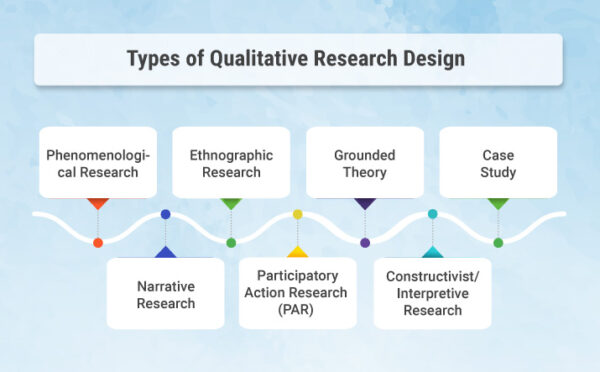If you have an exact title add ti= (eg. ti=Emergency Medicine)
Descriptive vs. analytic studies
Research study designs can be grouped into into two broad categories -- descriptive or analytic -- with subgroups underneath. The study design 'tree' is shown below.

Image source: Centre for Evidence-Based Medicine.
Overview of study designs
The table below outlines common study designs used in health research. Click the image to view a full-size PDF version.
Study designs for quantitative research
Click the blue button below to open a 1-page PDF overview of study designs commonly used for quantitative research, along with their strengths, limitations, and links to example papers.
Quantitative study designs - Overview
Additional resource
Selecting a study design
Selecting the most appropriate study design for your research depends primarily on three factors:
Read the following paper by Craig M. Mellis (2020) for guidance on selecting a study design and the advantages and disadvantages of each.
Article - How to choose your study design
Additional resources
What are experimental studies?
Put simply, experimental studies test new interventions and analyse the effects.
Experimental study designs
In health and medical research, experimental studies are largely trials.
Clinical trials are closely regulated by the Therapeutic Goods Administration (TGA).
Randomised controlled trials (RCTs)
RCTs are prospective studies which test the effectiveness of a new intervention --- such as a new drug, lifestyle intervention, or medical device. Importantly, these interventions are randomly allocated to the participants, reducing potential bias.
Although RCTs are the 'gold standard' for measuring effectiveness, they are resource-intensive and the findings are not always generalisable (read more).

Image source: https://www.simplypsychology.org/randomized-controlled-trial.html
Australian Clinical Trial Handbook
The TGA's Australian Clinical Trial Handbook is an essential resource covering legislative, regulatory, and Good Clinical Practice (GCP) requirements.
What are they?
In an observational study, researchers collect data without intervening or manipulating any variables. Instead, they analyse naturally occurring relationships between variables or characteristics.
Observational study designs
The most common types of observational study designs are:
Refer to the first four rows of our 1-page PDF overview for a summary of these study designs. Click the blue button below to open the PDF.
Cohort studies: A brief overview (5 mins 33 secs)
A/Prof Terry Shaneyfelt, from the University of Alabama School of Medicine, discusses the pros and cons of cohort studies, and where they sit in the hierarchy of evidence.
Study Design Part 3 - Cross Sectional Studies (5 mins 30 secs)
Resources
Observational studies
Cohort studies
Case-control studies
Cross-sectional studies
Reviews & evidence synthesis
Reviews -- such as systematic reviews and rapid reviews -- gather and integrate evidence from various existing studies on a given topic. They are are a form of evidence synthesis.
Choosing a review type
Refer to the table below for an overview of common types of reviews and evidence syntheses. Click the image to open a PDF version with clickable links.
Visit the Right Review tool -- an online quiz -- to help you determine which review type is most appropriate for your research question.
Systematic reviews & meta-analyses
In contrast to some review types, such as narrative reviews, these studies use rigorous, transparent, and reproducible methodology. They are regarded as a higher-level of evidence and form a key part of evidence-based practice.
Visit our Systematic Review Guide for more information about how to conduct a systematic review and/or meta-analysis.
What are systematic reviews? (3 mins 23 secs)
Published by Cochrane, this video outlines the steps involved in a systematic review.
A three minute primer on meta-analysis (3 mins 2 secs)
This animation briefly explains the purpose of meta-analyses. Published by the Tobacco and Alcohol Research Group (TARG) at the University of Bristol.
Qualitative study designs
The image below displays examples of qualitative study designs.

Image source: https://ideascale.com/blog/qualitative-research-design/
Qualitative research methods
Qualitative data can be collected via various methods -- the 1-page PDF linked below provides an overview of common methods.
Qualitative research methods - Overview
Qualitative data can also be collected for mixed-methods studies, to complement quantitative data and investigate questions related to experiences, perspectives, or meaningfulness.
Introductory article to qualitative research
Yale University online modules
Yale University offers a series of YouTube videos covering the fundamentals of qualitative methods. Modules are:
Click the blue button below to view the whole YouTube playlist.
Monash Health acknowledges the Bunurong/Boonwurrung and Wurundjeri Woi-wurrung peoples, the Traditional Custodians and Owners of the lands where our healthcare facilities are located and programs operate. We pay our respects to their culture and their Elders past, present and future.
We are committed to creating a safe and welcoming environment that embraces all backgrounds, cultures, sexualities, genders and abilities.